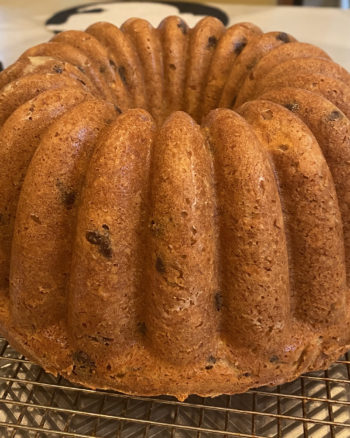I love to tell the story that I refer to as “The Ham in the Pan”. There are two reasons I often share this story. It shows how there is value in asking questions. Especially for asking “why?”. And, although I am all for not reinventing the wheel, I find value in considering the possibility that there may be a better way to do something.
I’m quite sure this story did not originate with my family. Nevertheless, I tell it as if it did.
Ham in the Pan Story: Once when I was preparing my ham roast to bake like my mom had taught me, I asked my grandmother: “Grandma, my mom told me she learned how to prepare a roast ham from you. She passed along that same tradition to me. And, while it always turns out great, I’ve often wondered–why do we cut off both ends of the roast before putting it in the baking pan? She quietly chuckled to herself and replied “Oh, honey, I used to do that because my pan was too small!”
When doing a task the same way we’ve always done it, sometimes the reason we do it that way is lost—especially if the task at hand is passed down from generation-to-generation, employee-to-employee, volunteer-to-volunteer. This superficial learning is more common than you think: the task might have been learned by observing another’s actions or taught by the expert without sharing the nuance of why things were done a certain way. Sure, doing things the same way as it’s always been done can be a good thing. I mean, why fix it if it isn’t broken? However, when we don’t take time to wonder about why we do something, things may be repeated that are unnecessary or are no longer relevant. Unless we take the time to understand the intent behind the process, it’s hard to know when things have become obsolete.
The world around us benefits from evolution. By seeking to understand the reason why, we open ourselves up to the possibility of finding a better way. Alternatively, if we find the explanation sufficient to continue with the status quo, this enhanced perspective may be inspiring, and we become even more committed to the practice as it was taught. When we choose to engage, instead of robotically following instructions, we embark on an adventure of discovery and awaken more of our brain. I admit there are times when it’s nice to take someone’s word for it, to trust them and their expertise. I ask you to consider the possibility that by understanding the “why?” we may open ourselves up to discovering an even better way or sometimes even more lovely, a commitment to honoring the why beyond the how.
I encourage you to recognize the benefit of being around those that question the status quo. I especially love it when the answers surprise me. Over the years, I have come to identify myself as a consummate questioner. At times, it has put people on the defensive, which is never my intention. When folks react that way, I recommend you reassure them you are coming from a place of curiosity instead of judgement. I view asking questions as a sign of respect for their expertise, which I would rather learn than simply repeat. Getting knowledge deeper into the bones makes me loyal to the craft. Going beyond the “how” to the “why” ultimately makes knowing the task that much more meaningful. It is for this reason, I love asking why.
Do you have any “ham in the pan” stories where you failed to ask why and then laughed when you finally discovered the reason?
Printable version HERE.



